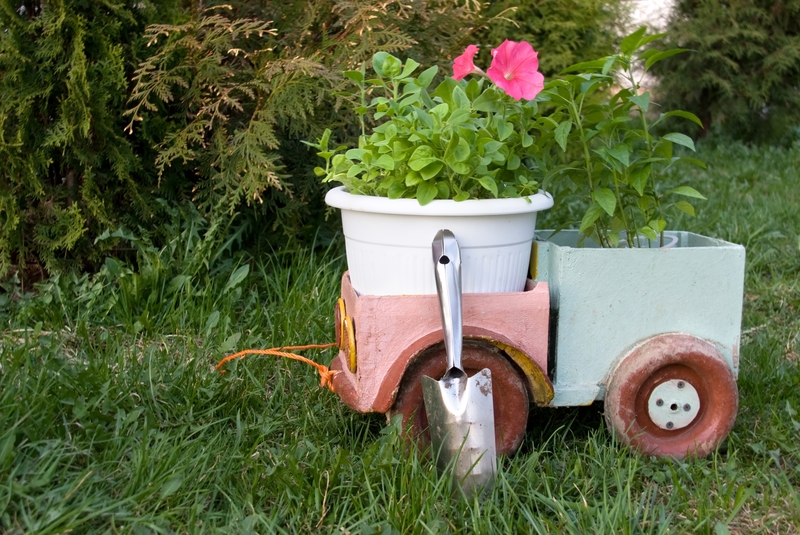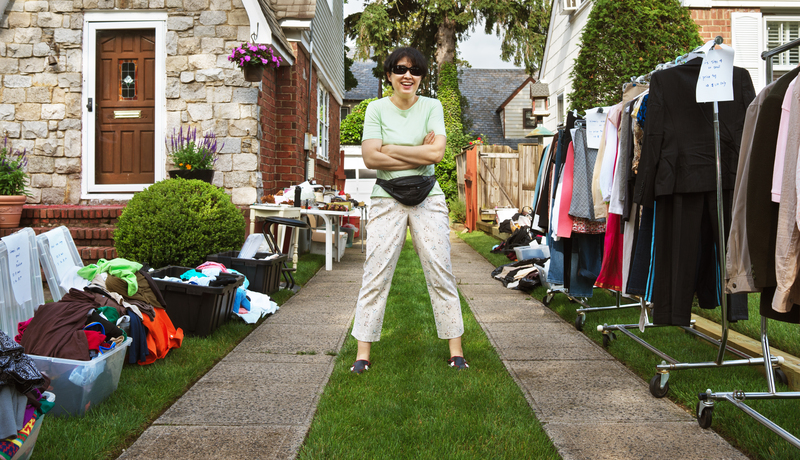Unlock the Secrets to Successful Home Recycling Practices
Unlocking the secrets of effective home recycling is more than just tossing cans into the blue bin. It requires knowledge, dedication, and some creativity. In this comprehensive guide, we delve deep into the proven strategies and hidden tips that turn your home into a recycling powerhouse. Whether you are a newcomer or looking to fine-tune your approach, discover how to master home recycling practices and make a real difference for the planet!

Understanding the Importance of Home Recycling
Why is home recycling crucial? Our environment is at risk due to mounting waste in landfills and widespread pollution. By recycling at home, individuals can significantly reduce their carbon footprint, conserve valuable resources, and minimize greenhouse gas emissions. But the key to impactful recycling lies not only in participation but in doing it correctly.
- Reduces landfill waste
- Saves energy and resources
- Protects natural habitats
- Promotes circular economy
Let's dive into the secrets and best practices for making home recycling second nature.
Understanding What Can and Cannot Be Recycled at Home
One of the most common mistakes in household recycling is "wishcycling" -- tossing questionable items into the recycling bin and hoping for the best. This can actually do more harm than good.
Commonly Recyclable Items in Most Homes
- Paper: Newspapers, magazines, office paper, cardboard boxes (flattened)
- Plastic bottles and containers (check for #1 and #2 recycling symbols)
- Glass bottles and jars (rinse before recycling)
- Metal cans (aluminum, tin, steel)
What Should Not Go Into Your Recycling Bin?
- Plastic bags and films (these usually require separate drop-off locations)
- Food-contaminated items (like greasy pizza boxes)
- Styrofoam products (expanded polystyrene, commonly not accepted)
- Ceramics, drinkware, and light bulbs
- Batteries and electronics (require special handling)
Tip: Always check your local recycling guidelines as rules can significantly vary depending on where you live.
Implementing Effective Home Recycling Practices
1. Set Up an Efficient Recycling Station
Location matters! Place your recycling bins in convenient spots: kitchen, garage, or near the main trash bin. Make recycling as easy as throwing away trash.
- Label bins clearly for different materials
- Use color-coded bins or bags for easy sorting
- Ensure bins are accessible for all family members
2. Learn How to Properly Prepare Recyclables
Clean, dry materials are less likely to contaminate the recycling stream. Here's what to do:
- Rinse containers (no leftover food or liquids)
- Remove lids where applicable
- Flatten boxes to save space
- Let items dry before placing into bins
3. Avoid "Aspirational" Recycling
Wishcycling can damage entire loads of recyclables. Be realistic and informed about what's accepted locally. If in doubt, look it up or throw it out (responsibly!).
4. Compost Organic Waste
Food scraps and yard waste make up a significant part of household garbage. Instead of sending these to landfill, start a compost pile or use a countertop bin for organic materials.
- Compostable items: fruit/vegetable peels, coffee grounds, eggshells, yard trimmings
- Avoid: meat, dairy, and oils (these attract pests and create odor)
Composting not only reduces landfill contributions but also produces nutrient-rich soil for your garden.
The Role of Education and Habit Formation in Recycling Success
Get the Whole Family Involved
- Assign recycling roles and make it a family activity
- Educate children about why recycling matters
- Set up recycling reminders on calendars or devices
Stay Updated on Local Recycling Programs
Many municipalities update guidelines as technology and markets change. Sign up for city newsletters, follow waste management on social media, and attend community meetings. Knowledge is power when it comes to effective home recycling.
Integrate Recycling Into Daily Routines
Consistency is the secret. Incorporate recycling steps into your day-to-day habits:
- Keep reusable bags handy for shopping
- Place mail and junk paper directly into the recycling bin
- Develop a habit of checking recycling labels
Advanced Strategies for Home Recycling Success
1. Recycle Beyond the Bin
For items not accepted in curbside programs, find specialized recycling drop-offs or programs for things like:
- Batteries and electronics (e-waste recycling)
- Textiles and clothing
- Plastic bags and wrap at grocery stores
- Old appliances (white goods recycling)
Many retail stores and community centers offer collection points for specific materials. Don't let these items end up in the landfill!
2. Upcycle and Reuse at Home
Upcycling transforms would-be waste into functional or decorative items. Try these easy projects:
- Turn glass jars into storage containers or vases
- Use cardboard boxes for kids' crafts or organization
- Transform old textiles into cleaning rags or quilts
3. Buy Recycled and Recyclable Products
Close the loop by supporting products made from recycled materials and items designed for easy recycling at the end of their lifespan. Look for:
- Recycled-content paper and packaging
- Recyclable materials marked with clear symbols
- Minimal and eco-friendly packaging
Overcoming Common Home Recycling Challenges
Addressing Contamination Issues
Contaminated recyclables -- items mixed with food or non-recyclables -- are the top reason why recycling efforts fail. Always make sure your recyclables are clean and sorted. Even a single greasy item can spoil an entire batch!
Space Constraints
If you live in a small home or apartment, smart, space-saving solutions can help. Try:
- Stackable bins or under-sink organizers
- Frequent trips to communal recycling areas
- Collapsible containers for easier storage
Tackling Convenience Barriers
User-friendly setups are key. Keep bins close and ensure everyone knows the system. Integrating your recycling routine with other chores or errands can improve consistency.
Leveraging Technology for Smarter Home Recycling
Modern technology can turn recycling guesswork into a science. Here's how:
- Use recycling apps that tell you how to properly dispose of specific items in your area
- Apply QR code scanning to check if products are recyclable
- Receive reminders and pickup schedules on your devices
Innovative tools make mastering home recycling easier and more effective than ever before.
Measuring the Impact of Your Home Recycling Efforts
Track your progress to stay motivated and amplify your impact:
- Keep a log of what and how much you recycle each week
- Calculate your waste diversion rate
- Set family recycling goals and celebrate reaching them!
Did you know? Recycling just one aluminum can saves enough energy to power a TV for several hours. Multiply that by your weekly haul, and your effect is enormous!
Join Community Initiatives
- Participate in local clean-up events
- Promote recycling around your neighborhood
- Share successful home recycling tips online

Frequently Asked Questions About Home Recycling Practices
How can I start recycling at home effectively?
Begin by learning your local recycling regulations. Set up a clearly marked, accessible recycling station, educate your household members, and commit to regular, proper sorting and cleaning of recyclables.
What should I do with items that aren't accepted in my curbside bin?
Research special recycling programs in your area for items like electronics, batteries, and plastics not accepted curbside. Many retailers and community organizations offer solutions for these tricky items.
Can I recycle plastic bags at home?
Most curbside programs do not accept plastic bags or films. Take them to collection points at major grocery stores instead.
Conclusion: Mastering the Art of Home Recycling
Unlocking the secrets to a successful home recycling routine doesn't require superhuman effort, just a bit of knowledge and consistency. By understanding what you can recycle, embracing efficient practices, educating your family, and getting creative with upcycling, you'll make your home a beacon of sustainability.
Remember, every small action contributes to a larger impact. By committing to these home recycling best practices, you're not just decluttering -- you're protecting the planet for future generations.
Take the first step today, and unlock the full potential of home recycling for a cleaner, greener tomorrow!
```